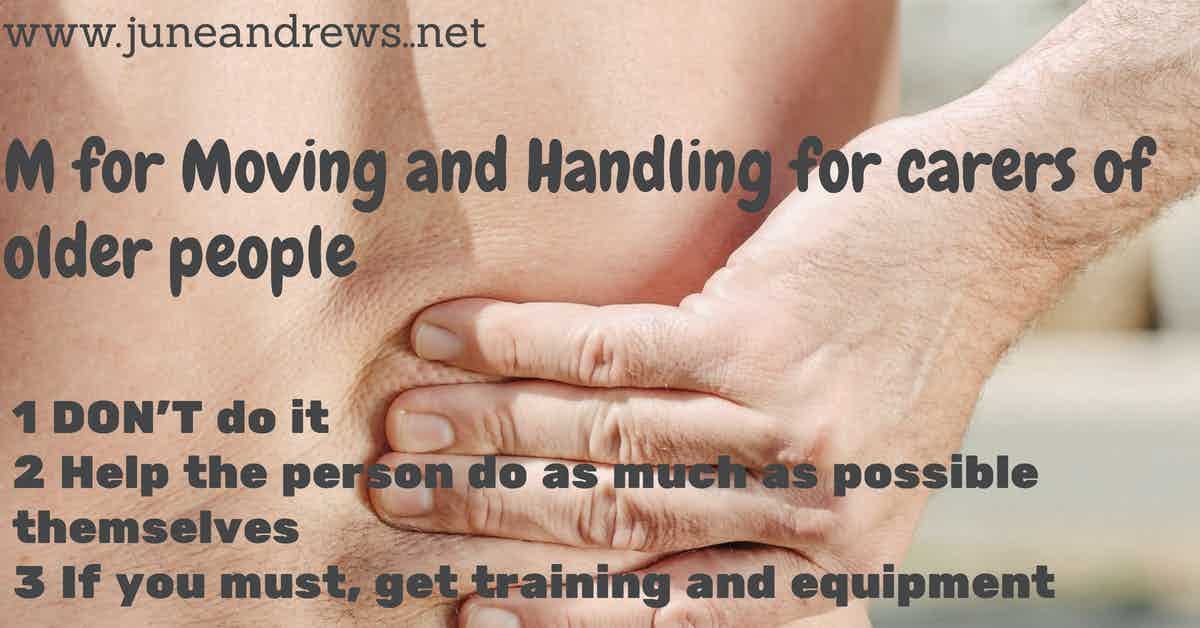Moving and handling (also known as lifting!)
In the run up to publication of my new book Carers and Caring; the One Stop Guide; how to care for older relatives and friends I am sharing an A to Z of some of the practical solutions learned from research and experience.
Moving and handling
The most common injury for a carer is a back injury. When you hurt your back it can take a very long time to recover, and you may end up needing care yourself. The local council has an obligation to help carers avoid health and safety risks, so you should ask for a needs assessment for the person you look after as well as a carer’s assessment for yourself. They might also offer free training courses on safe handling, or you could ask for a direct payment so you can pay for a course yourself The council may provide free equipment such as hoists, stand aids, transfer boards or slide sheets to make moving someone safer and easier, and they should do a risk assessment for this kit. Advice from an occupational therapist or social worker should be sought before buying any equipment. You can get more information about what is available from the AskSARA website or a fact sheet from the Disabled Living Foundation at Living Made Easy.
You may need to help someone get in or out of bed, turn over, sit up or in and out of a bath or chair. Bed rails and bath rails can help the person do a lot for themselves. The training will show you a checklist of things to think about before you try a lift. This includes considering whether they really do need help to move, or just supervision. How strong you are is important, as well as how heavy they are, and you should not attempt to lift a heavy weight without assistance. You need to check that the surface is not slippery and your shoes are right for this. Getting it wrong can injure the person you are caring for as well as yourself. Nobody needs that.
There is much more about protecting your back and moving and handling in Carers and Caring: The One-Stop Guide: How to care for older relatives and friends - with tips for managing finances and accessing the right support available from all good bookshops in May 2022
Three hints:
1. Don’t do it
2. Get the person to do as much as possible themselves
3. If you must lift or move the person, get training and equipment first

